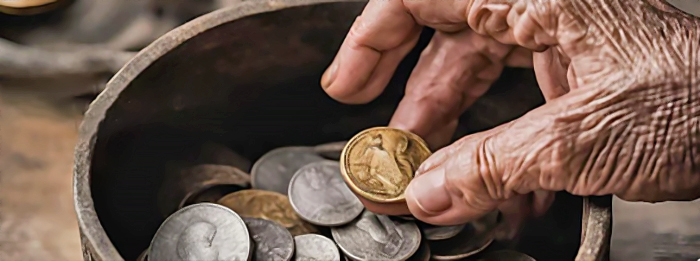
Poverty is what can make us grateful for everything we have. One new blouse does not get lost among all the other hangers in the cupboard. One new book becomes a treasure, not just one more kind of recreation. No new toys, clothes, or furniture makes us treasure what little of each of them we have. Sister Joan Chittister writes about a young mother who found the pair of new shoes she had just bought her daughter that week in a trash bin in front of the house, awaiting the city trash collectors. “What are these doing here?” she asked her daughter. “I just got them for you two days ago.” “I don’t like them,” the teen said back. “None of the other kids wear anything like this.” Only poverty, perhaps, can give us a sense of what it is to be grateful for what you have and even more thankful for what you get for nothing. In poverty, God is not a question. The God who hears the cry of the poor is all the poor can be sure of because it can only be the goodness of God that supplies their daily needs. To learn the lesson of generosity from the widow in today’s Gospel, we first must notice the widow, which may be the more significant challenge Jesus puts before us. In Jesus’ time on earth, the crowd of rich, powerful, and privileged persons overshadowed those on the margins of society: the poor, the sick, the stranger, and the woman in today’s reading, who were quickly lost in the crowd. But Jesus notices the widow and sees what she is doing, tossing her precious coins. In his typical way of overturning expectations and disrupting convention, Jesus makes the widow the center of attention. The one on the margin is brought to the center. Jesus creates a new way of looking at the world, religion, and one another. So, the alleluia that arises out of poverty is not about having nothing; the alleluia is in gratitude for the kind of poverty that wants for nothing that does not add to a sense of the presence of God and the liberating grace of knowing we have enough if we have him. May we all be so lucky to have that much.
